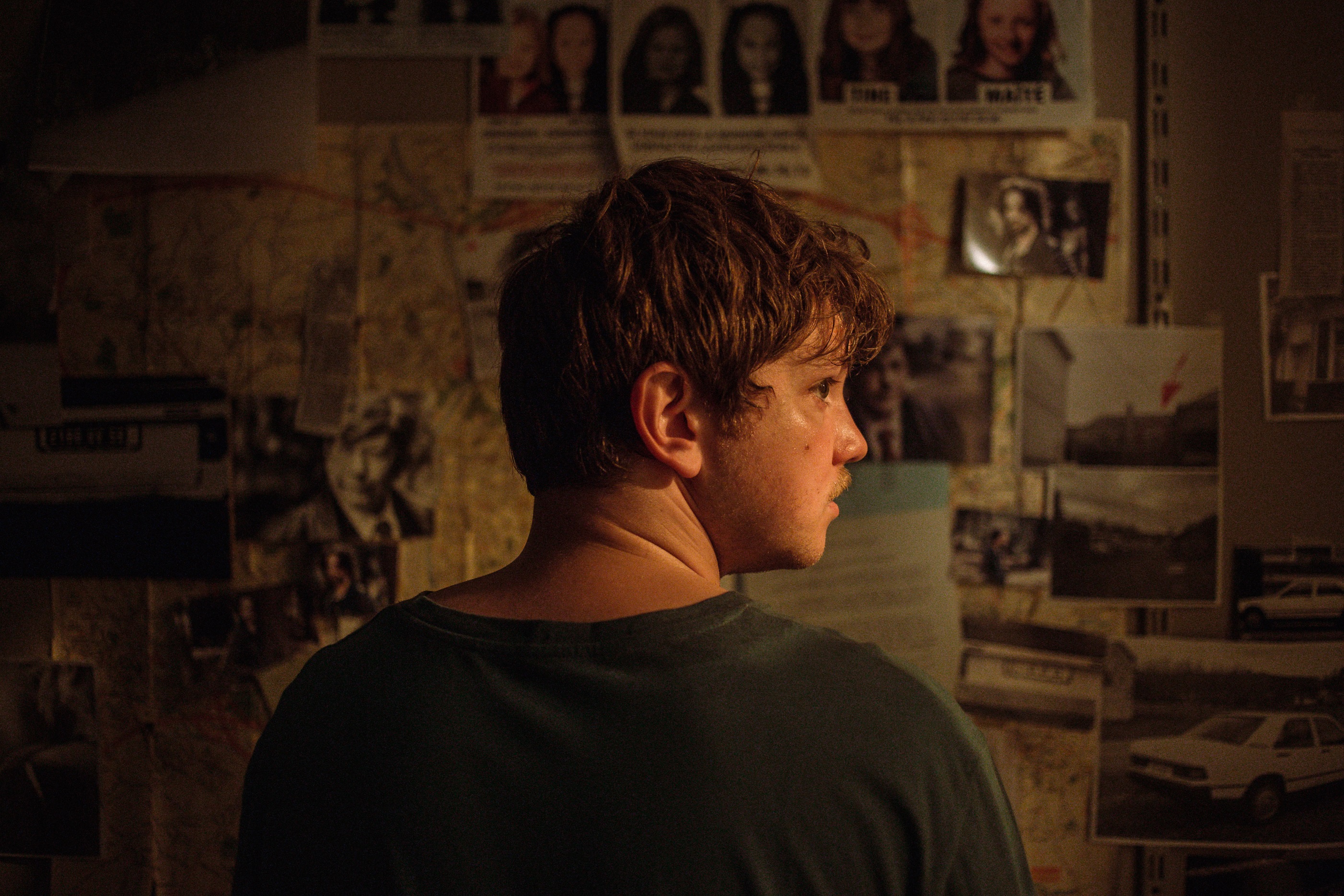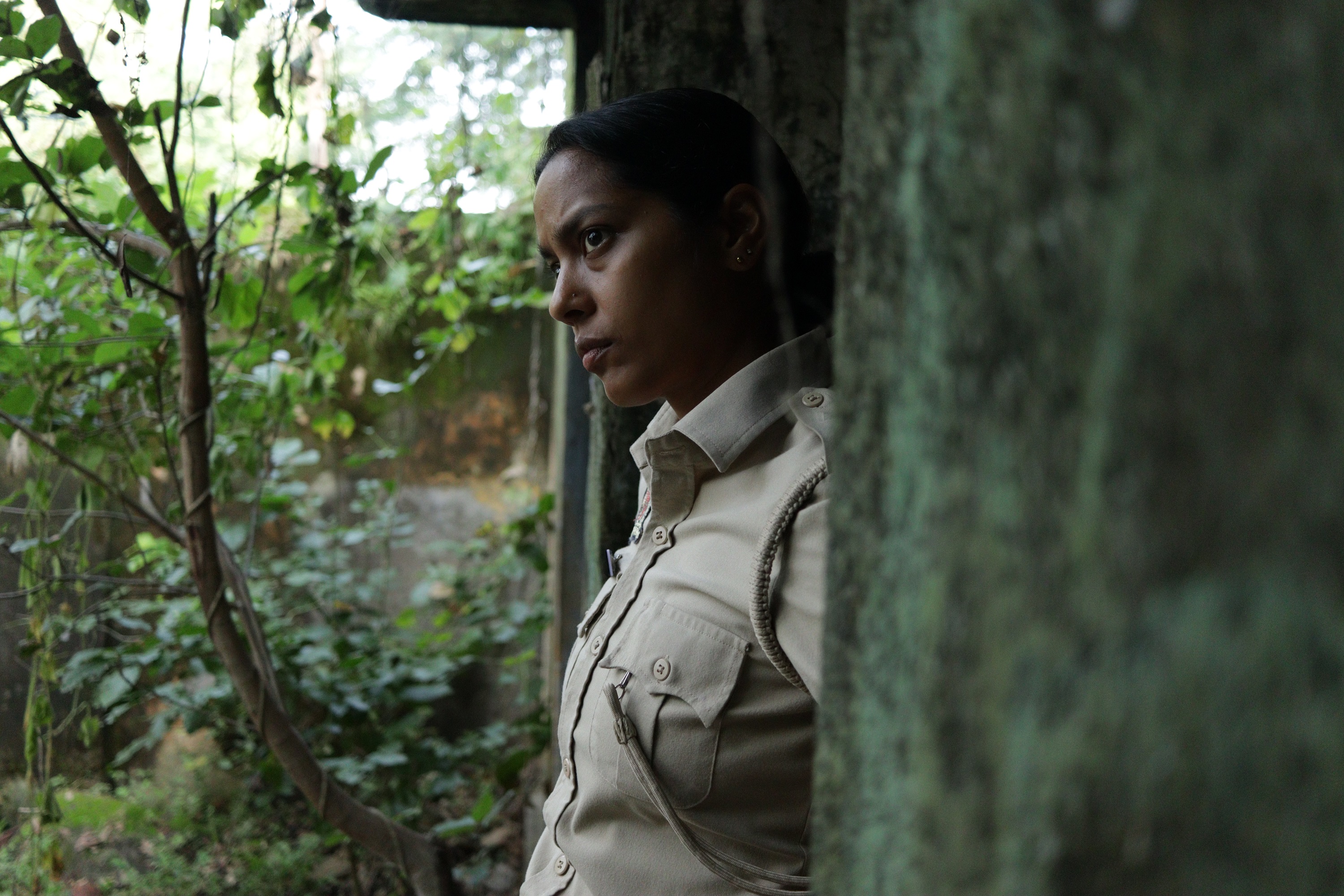RaMell Ross’s feature debut follows his poetic documentary Hale County This Morning, This Evening (2018) in again observing black Southern teenage boys, this time in Sixties juvenile prison the Nickel Academy, where beatings and unmarked graves await the unluckiest. It faithfully adapts Colson Whitehead’s Pulitzer-winning novel The Nickel Boys, whose writing’s loving warmth made its horrors bearable, his hope for his characters outlasting their fates.
Ellwood (Ethan Cole Sharp) is a serious-minded schoolboy in Tallahassee, Florida, driven by Martin Luther King’s Civil Rights protests and an inspiring black teacher (Jimmie Fails) to beat the racist odds and fulfil his abundant potential, till a chance lift in a stolen car makes him a Nickel Boy.
Narrative identity is crucial to Whitehead’s book, and Ross films from his protagonists’ points of view. We see Ellwood’s world through his eyes for 37 minutes, glimpsing his reflection in an iron, till he fully appears from the perspective of fellow inmate Turner (Brandon Wilson), a looser-limbed, worldly boy fascinated and fearful at his friend’s idealism. It’s a technique intermittently tried in crime and horror films such as the Chandler adaptation Lady in the Lake (1947), which fades in importance once the boys interact.
The sense of interiority works in concert with Ross’s sensuality as the sun sparks on a crucifix in a pickup truck and an alligator surreally thrashes through a gutter, and the natural world offers tender beauty close enough to touch. From the Silver Surfer’s alien exile in the comics Ellwood reads to the Academy’s enticing, forbidden open fields, such cosmic possibility is cruelly dashed by racism. The score’s fly-buzz strings deepen the rot.
Nickel Boys’ first-person experiment is less significant than its elliptical nature, passing over the full horror of the boys’ beatings in a welcome refusal of black torture porn, but also skipping past Whitehead’s unabashed emotion. All the performances feel right – the upright seriousness of Sharp’s Ellwood, and Daveed Diggs as his wounded adult iteration – but they exist in a story laying lapidary clues to itself, like time-lapse photography or blackout memories.
 Belgian thriller extremist Fabrice Du Welz takes a gaudier approach to crime and punishment with Maldoror, inspired by the notorious Nineties serial killer, rapist and child molester Marc Dutroux, who escaped arrest for years thanks to Belgian police pettiness and corruption. Du Welz centres his fictionalised tale around Paul Charter (baby-faced Anthony Bajon, pictured above), son of a jailed bank robber dad and prostitute mum (Béatrice Dalle) driven to prove himself as a cop. He’s told the culprit for two girls’ abduction at once, and we soon follow seedy minor criminal Dedieu (Sergi López) down to the secret cellar where he stores his victims, making Paul’s colleagues’ inertia and ignorance literally maddening, as his pursuit of Dedieu becomes all consuming. It’s a grubby, grand saga soiled by dissolved corpses and repulsive grindhouse paedophiles, while crusading like a Sidney Lumet exposé. Vincent Cahay’s Morricone-esque score confirms the thunderous ambition of a story which barely pauses with Dedieu’s defeat, dragging in deep state conspiracies and video nasty horror. Though its focus sometimes flags, Maldoror’s uncompromising drive exhilarates, suggesting a would-be Belgian Scorsese.
Belgian thriller extremist Fabrice Du Welz takes a gaudier approach to crime and punishment with Maldoror, inspired by the notorious Nineties serial killer, rapist and child molester Marc Dutroux, who escaped arrest for years thanks to Belgian police pettiness and corruption. Du Welz centres his fictionalised tale around Paul Charter (baby-faced Anthony Bajon, pictured above), son of a jailed bank robber dad and prostitute mum (Béatrice Dalle) driven to prove himself as a cop. He’s told the culprit for two girls’ abduction at once, and we soon follow seedy minor criminal Dedieu (Sergi López) down to the secret cellar where he stores his victims, making Paul’s colleagues’ inertia and ignorance literally maddening, as his pursuit of Dedieu becomes all consuming. It’s a grubby, grand saga soiled by dissolved corpses and repulsive grindhouse paedophiles, while crusading like a Sidney Lumet exposé. Vincent Cahay’s Morricone-esque score confirms the thunderous ambition of a story which barely pauses with Dedieu’s defeat, dragging in deep state conspiracies and video nasty horror. Though its focus sometimes flags, Maldoror’s uncompromising drive exhilarates, suggesting a would-be Belgian Scorsese.
 Sandhya Suri’s North India-set debut Santosh builds wrongfooting moral complexity from its titular accidental policewoman (Shashana Goswami, pictured above), a grieving widow who inherits her late husband’s job. The local cops contemptuously dismiss a low-caste rural woman’s disappearance till her murdered body inspires furious protests. Taken under the maternal wing of a tough policewoman, Santosh hunts a suspect through frightening nighttime streets only for Suri to flip expectations, as her protagonists react to misogyny, sexual repression of young people, caste and anti-Muslim prejudice by purging participation in brutality. Goswami’s smouldering, watchful performance and Sunita Rajwar’s bluff charm as her monstrous mentor contribute to this initially plain-looking film’s complex thematic grip.
Sandhya Suri’s North India-set debut Santosh builds wrongfooting moral complexity from its titular accidental policewoman (Shashana Goswami, pictured above), a grieving widow who inherits her late husband’s job. The local cops contemptuously dismiss a low-caste rural woman’s disappearance till her murdered body inspires furious protests. Taken under the maternal wing of a tough policewoman, Santosh hunts a suspect through frightening nighttime streets only for Suri to flip expectations, as her protagonists react to misogyny, sexual repression of young people, caste and anti-Muslim prejudice by purging participation in brutality. Goswami’s smouldering, watchful performance and Sunita Rajwar’s bluff charm as her monstrous mentor contribute to this initially plain-looking film’s complex thematic grip.
 Chinese great Jia Zhangke’s Caught by the Tides is an impressionistic chronicle shot intermittently through the 21st century. The earliest elements, Jia explained in a post-screening Q&A, saw 2001 experiments with digital cameras move away from mainstream narrative cinema, as he instinctively observed hidden connections between people and things. Lockdown led him to reexamine this archive, incorporating scenes from previous films such as his meditation on the Three Gorges Dam’s submersion of a city, Still Life (2006). Jia’s wife and regular star Zhao Tao, pictured above, moves through the changing scene as a hopeful provincial singer, following her abusive, absconding manager as he pursues his own dreams of glory during China’s febrile superpower ascent. Shady gangster-entrepreneurs rise and fall, actor-characters decay and age, and this man and woman doggedly continue, dwarfed by shanty towns clinging to hills topped by luxury apartments. Montages and dissolves catch the whole nation in flux, as riverboats move between lush mountains, borne too by history’s current. It’s an improvised epic whose molecular elements gradually cohere around its stars, accruing sense and feeling. “Once all these things have passed,” Jia observed afterwards, “there’s a tide of sadness.”
Chinese great Jia Zhangke’s Caught by the Tides is an impressionistic chronicle shot intermittently through the 21st century. The earliest elements, Jia explained in a post-screening Q&A, saw 2001 experiments with digital cameras move away from mainstream narrative cinema, as he instinctively observed hidden connections between people and things. Lockdown led him to reexamine this archive, incorporating scenes from previous films such as his meditation on the Three Gorges Dam’s submersion of a city, Still Life (2006). Jia’s wife and regular star Zhao Tao, pictured above, moves through the changing scene as a hopeful provincial singer, following her abusive, absconding manager as he pursues his own dreams of glory during China’s febrile superpower ascent. Shady gangster-entrepreneurs rise and fall, actor-characters decay and age, and this man and woman doggedly continue, dwarfed by shanty towns clinging to hills topped by luxury apartments. Montages and dissolves catch the whole nation in flux, as riverboats move between lush mountains, borne too by history’s current. It’s an improvised epic whose molecular elements gradually cohere around its stars, accruing sense and feeling. “Once all these things have passed,” Jia observed afterwards, “there’s a tide of sadness.”
 Sergei Loznitsa was born in the Soviet Union and has recorded reborn Ukraine with objective documentaries such as Maidan (2014), filmed during the protests which overthrew its pro-Putin president, and the blunt force black humour of his feature Donetsk (2018). A Gentle Creature (2017)’s baroque fairy tale of Russian bureaucracy, In the Fog (2012)’s claustrophobic World War Two drama of patriotic suspicion and the documentary Babi Yar. Context (2021)’s confronting of Ukrainian Nazi complicity confirm his distaste for simple propaganda. His new documentary The Invasion focuses on Ukrainian civilian life in wartime. A series of long, unjudgmental scenes gradually intensify the war’s impact, from a kitsch wedding and winter river baptisms to amputees’ rehab, memories of torture and mine-clearing on a summer’s day. Loznitsa pays particular attention to a wonderful Kyiv bookshop’s dispatch of mostly Russian books for pulping, following Dostoevsky, Lenin and Jack London to their doom with unspoken regret. It’s another valuable global perspective from the London Film Festival, concluding this year’s Arts Desk coverage.
Sergei Loznitsa was born in the Soviet Union and has recorded reborn Ukraine with objective documentaries such as Maidan (2014), filmed during the protests which overthrew its pro-Putin president, and the blunt force black humour of his feature Donetsk (2018). A Gentle Creature (2017)’s baroque fairy tale of Russian bureaucracy, In the Fog (2012)’s claustrophobic World War Two drama of patriotic suspicion and the documentary Babi Yar. Context (2021)’s confronting of Ukrainian Nazi complicity confirm his distaste for simple propaganda. His new documentary The Invasion focuses on Ukrainian civilian life in wartime. A series of long, unjudgmental scenes gradually intensify the war’s impact, from a kitsch wedding and winter river baptisms to amputees’ rehab, memories of torture and mine-clearing on a summer’s day. Loznitsa pays particular attention to a wonderful Kyiv bookshop’s dispatch of mostly Russian books for pulping, following Dostoevsky, Lenin and Jack London to their doom with unspoken regret. It’s another valuable global perspective from the London Film Festival, concluding this year’s Arts Desk coverage.
- Read more film reviews on theartsdesk















Add comment